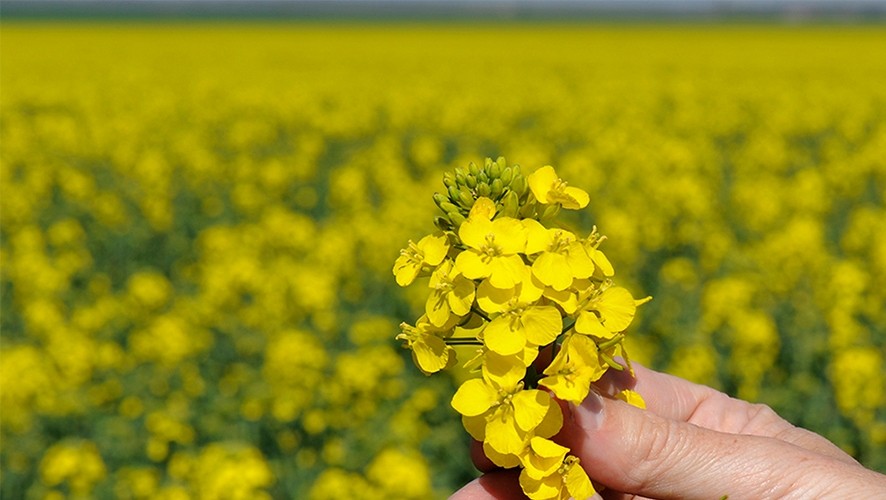What agriculture for a sustainable food production? An interview with Emmanuelle Duchateau, farmer.
How can we produce a more sustainable food supply? Can a specific standard be applied to all types of soil? From sustainable agriculture to agro-ecology and mixed farming, we offer you three agricultural perspectives that are firmly committed to sustainable food.
Emmanuelle Duchateau is a farmer in the town of Marquise, in the Pas-de-Calais region of France. She works with her husband and son on a farm of more than 270 hectares. They chose to diversify their activity by allowing different crops and livestock to coexist. She regularly opens up her farm enabling young people to discover an often overlooked environment. Why should one choose to diversify into a variety of crops? What role should livestock play in the context of sustainable agriculture? Here is her story.
What agricultural production methods do you practice on your farm and why did you choose them?
We work in mixed farming, growing cereals such as wheat and barley, but also beet, flax, rapeseed, field bean, chicory, beans, and potatoes. At the same time, we have pastures where up to 240 of our cattle can be grazed. We only produce meat, not milk.
Diversifying our crops serves several purposes. This approach responds to the diversity of soils to which we have to adapt, thus enabling us to manage the situation if a crop is not economically viable in a certain year. This also facilitates the use of phytosanitary products thanks to mapping tools designed to determine the optimal quantity for each plot of land.
What qualifies this model of agriculture as sustainable?
Beyond the reduction of inputs, mixed farming is advantageous from an environmental point of view, as it enables us to develop complementary activities. Our grasslands help capture and store CO₂. We are well aware that we cannot do without inputs, however organic inputs such as the manure from the cattle we raise on the farm, have a much better greenhouse gas footprint than mineral inputs. The OleoZE platform created by Saipol offers a bonus for organic inputs. If tomorrow livestock is no longer bred, we would lack fertilizers and the abandoned grasslands would have a negative carbon impact. Our cattle provide the manure to enrich our crops in nitrogen, thus avoiding the need to introduce mineral nitrogen.
This model also enables us to achieve 100% autonomy in feeding our animals. We manage to raise cows weighing almost a ton by feeding them exclusively with the farm’s own production such as field beans, the protein intake of which is sufficient for their daily ration. Milk producers cannot get by without buying oilseed meal.
We also exchange fodder and manure between farmers. This is a practice that is historically rooted in our territories. This kind of complementarity must be fostered between neighbors, because it is one of the best ways to enhance the value of one’s production in a sustainable way.
-
270
Hectares, this is the total surface area of the farm
-
100%
This is the farm's level of food autonomy
How would you define sustainable food and how do you propose contributing to it?
Sustainable food is first and foremost a local supply favoring proximity, yet above all it is a matter of general interest. If we don’t take good care of our soil, tomorrow it will return the favor. It is in no one’s interest to engage in untimely and unreasonable production. Our objective therefore is to produce in a healthy and eco-friendly manner. Nowadays, agriculture has done its soul-searching and made a lot of progress, especially in terms of production techniques. We are continuously updating our practices and taking advantage of new developments that enable us to limit the environmental impact of our activities.
Finally, sustainable agriculture is an approach that favors quality over quantity. Better to eat less meat, but of higher quality. On the other hand, if we do not produce enough in France, we will end up importing more and more to meet our needs. We would suffer in terms of sustainability as well as in terms of breeding conditions and traceability. We must defend the value to be gained from producing meat locally.
